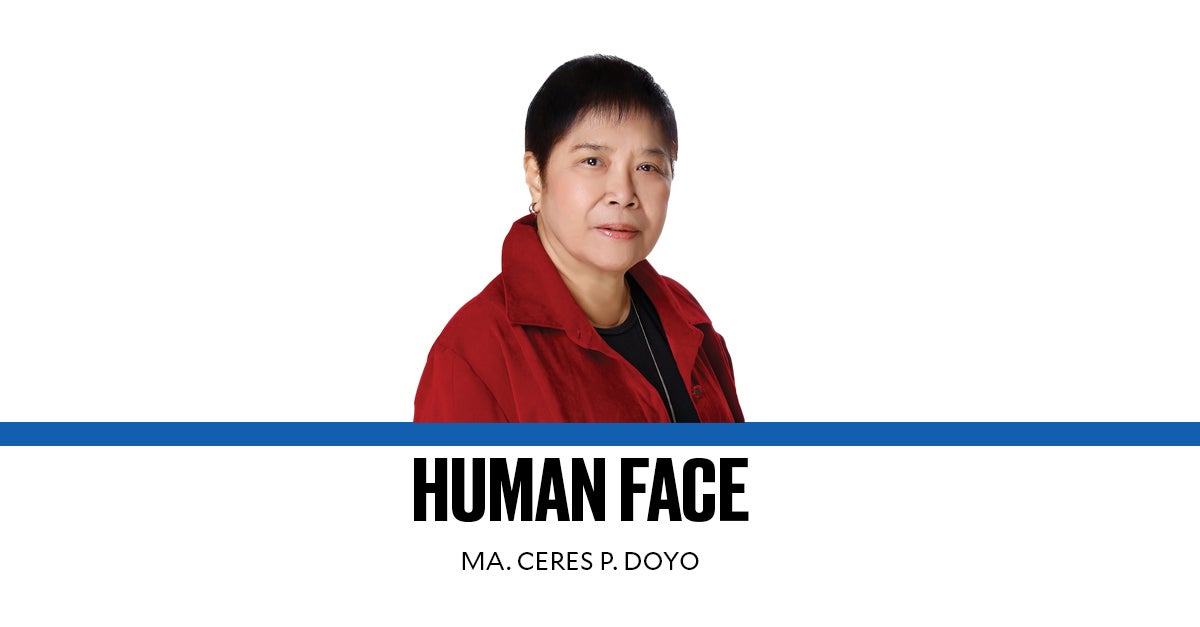Sickening display of wealth porn

Sickening surfeit of acts and displays for monetization and other purposes have been labeled as sex porn, food porn, and poverty porn. What about wealth porn? Sickening in Filipino is nakakasuka. Excuse me, but some things have to be said.
The red flags were staring them in the face. So how could two veteran TV hosts—Julius Babao and Korina Sanchez—have ignored them or looked away instead of probing into the territory that, to me, was a glaring goldmine of information on how people can enrich themselves by participating in government infrastructure projects? The answer given: It was a “lifestyle” story or something to that effect.
A fleet of 40 or so luxury cars, each one perhaps costing plus or minus P40 million, proudly presented by their owners to startle and dazzle. Bentley, Cadillac, Rolls-Royce, Jaguar, Maserati, name it. One of the cars for sale so delighted the would-be-owner because it had a hidden umbrella. She bought the car, the RR, I think, with the Hermes Orange upholstery. Social media went to town with it: “Meron naman kayang payong na may kasamang Rolls Royce?” I was in stitches.
The cars are owned by wealthy couple Curlee and Sarah Discaya, whose companies are contractors for the Department of Public Works and Highways (DPWH) infrastructure projects. (How do you drive an RR in the streets of Manila?) That was only the parking basement of the building; the upstairs was lavishly decorated with expensive feng shui objects from abroad, each one costing millions, as per the owners.
Interviews with the Discayas were separately aired on the two TV hosts’ shows as “rags-to-riches” stories many months ago, before the May 2025 elections. The wife, Sarah, would later run against incumbent and third-termer Pasig City Mayor Vico Sotto. Despite her charitable works (also shown in the show), she lost miserably.
It was only a week ago that Sotto called attention to those interviews, which brought shock and consternation to many people. This was in the aftermath of the massive flooding, made worse by billions of pesos worth of ghost flood control projects and substandard infrastructure that crumbled in the rain and brought havoc to lives and livelihoods. (My column last week: see “Fraud control for flood control,” 8/22/25) President Marcos descended on several devastated areas and saw for himself proofs of staggering corruption. The Discayas’ construction companies, it turned out, are among the Big 15 that bagged flood control projects. Read the Inquirer banner story several days ago.
I saw only snippets of Sanchez’s interview because it has been taken down from the internet, but I was able to watch Babao’s entirely. More than halfway through, the bedazzled Babao did pop the question about the “gateway” (the word he used) that led into the kind of fortune the Discayas now enjoy. Sarah’s prompt answer in Filipino: “When we joined DPWH.” I thought, what an OMG moment, nakabutas ka na, Julius, so what kept you spellbound?
Sotto had hinted about cash considerations, so-called “placements” in advertorial jargon, a practice between media companies and advertisers where paid advertisements come out as media content. It is a gray area, but in print media, there is usually a tagline that says “Paid Advt.” and the fonts used are different from the regular news reports and features.
But for working journalists on the beat, in the war zones or in the trenches (where I have been), money changing hands is a no-no. The same goes for those who still consider themselves bona fide journalists but who have migrated into other platforms. We have a code of ethics. I carry it in my cell phone. Integrity above all.
This brouhaha has brought to the fore not only the goings-on in government infrastructure projects but also among media practitioners who distinguish themselves from so-called vloggers/content providers who present themselves as “journalists” just because they are on a media platform. The latter are on their own and monetizing their own, with no media institution behind them and no veteran editors to assess their content and output.
The Discayas have shared their rags-to-riches story with the two interviewers, but not the secret on how one can follow in their footsteps, the nuts and bolts in contracting with the DPWH that catapulted them to immense wealth. But I could not help wondering why they were not more discreet, why they were baring it all. What about security considerations for their children? Was it to show that they got what it takes (the missus was going into politics)? The fleet of cars was precisely to serve that purpose in the construction business, the husband said.
Those with old money do not flaunt, part of class etiquette, perhaps. But the so-called nouveau riche has yet to know the ways. Ill-gotten, honestly earned, or won in the lotto, immense wealth is not always a blessing. Think Napoles now in prison; think Discayas who might have to face the music.
—————-
Send feedback to cerespd@gmail.com





















